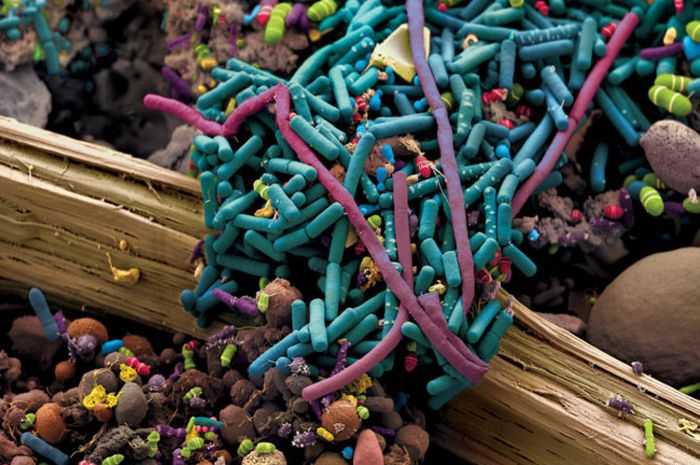Listeria monocytogenes is a pathogen bacteria often found in seafood products such as frozen fish fillet, crab, shellfish, and shrimps. This pathogen in seafood has been reported in several countries such as Australia, The USA, infecting adults aged 65 or older, and pregnant women and their newborns. Acknowledging the hazardous effect of this pathogen, the Codex Alimentarius Commission, an institution focusing on joint food standards FAO/WHO based in the USA, has set a zero count for products with favorable conditions for pathogen growth. However, achieving a zero count of L. monocytogenes is difficult. It remains a challenge because of the pathogen’s ability to survive and persist even in several environmental stressors such as low (−0.1 to −0.4°C) and high temperature (71°C), low pH, and high salinity.
Various strategies have been developed to control the incidence of L. monocytogenes in seafood including pasteurization, chemical use, and natural substance application such as bacteriocins. In general, bacteriocins have gained the most interest due to: being considered as natural biopreservatives recognized safe for consumers. They are inactive and nontoxic to eukaryote cells, pH and heat tolerant, and have bactericidal activity against bacterial pathogens. Currently, nisin and a class II bacteriocin are bacteriocins that are available commercially. However, these bacteriocins have been questioned due to their low solubility and instability in high pH values. In addition, some studies have reported the emergence of Listeria strains which are resistant to nisin. Thus, new types of bacteriocins with more stability in different environments are required to control L. monocytogenes in seafood products.
A study has been done by isolating bacteria from the intestinal tract and screening bacteria-producing antimicrobe that can kill L. monocytogenes. In general, the study showed promising results by acquiring 3 lactic acid bacteria, which can produce L. monocytogenes killing compound. Based on phenotypic assays and its 16S rDNA sequence, LAB strain with the best anti-listerial activity was identified as Enterococcus faecium (Act Nb: MG461637.1). In vitro tests showed that the anti-listerial compound is highly sensitive to proteinase K that showed the antimicrobe was bacteriocin. Moreover, bacteriocin produced by E. faecium was stable at pH (2–10), and temperature ( −20°C – 121°C). The test also showed that the bacteriocin could kill L. monocytogenes in salmon fillet stored at 0°C temperature. It showed that bacteriocins produced by E. faecium is potential as seafood product biopreservative capable of preventing growth of L. monocytogenes. However, the identity of the bacteriocins produced by the LAB and the best application method should be studied further.
Author: Muhamad Amin
Lecturer of Aquaculture Department, Faculty of Fisheries and Marine Sciences, Universitas Airlangga
Source: https://www.degruyter.com/document/doi/10.1515/opag-2022-0170/html









